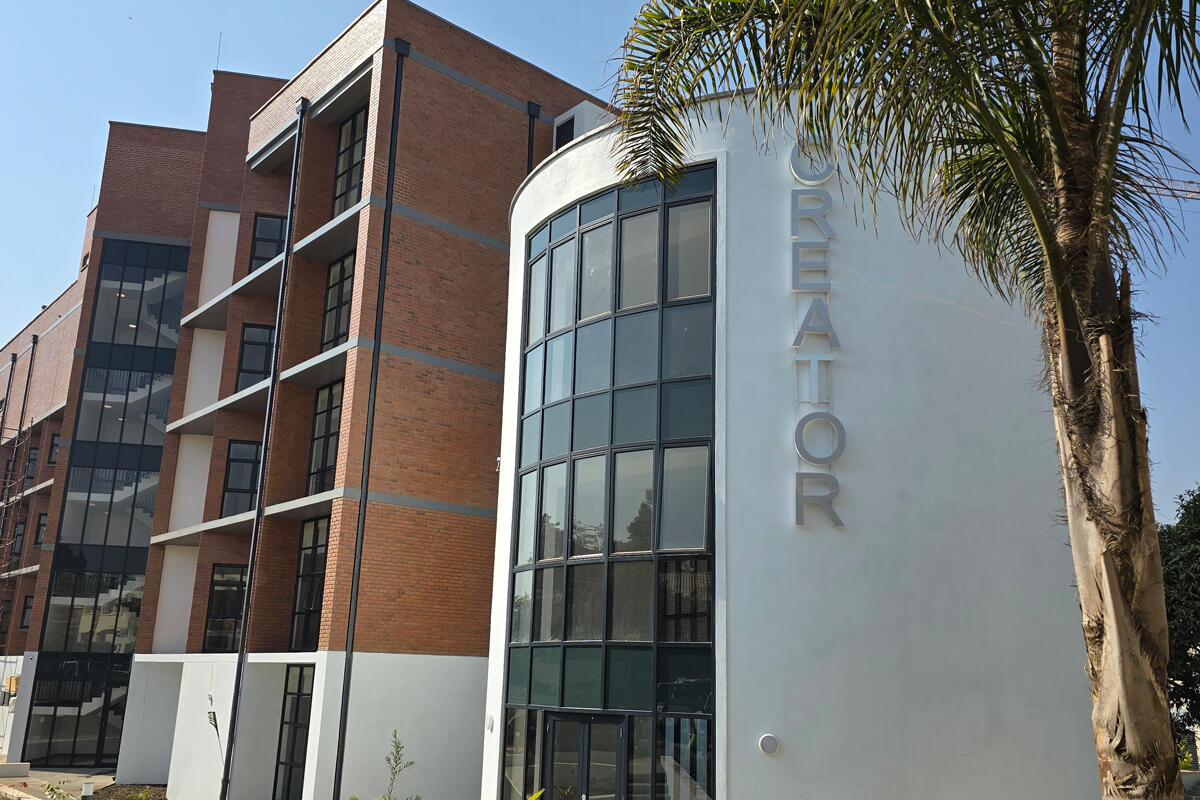
By Professor David Lalloo, Vice-Chancellor, Liverpool School of Tropical Medicine
Recently, Jim McKenna, the chair of LSTM’s Board, and I had the privilege to represent LSTM at the official opening of the new state-of-the-art CREATOR building at the Malawi Liverpool Wellcome Programme (MLW).
This building, which is equipped with the latest teaching and clinical research facilities, is the best of its kind in the region and was officially opened by the Malawian President, Lazarus Chakwera, and other national and international dignitaries and guests.
The event was shown live on Malawian television and streamed across social media to an audience of thousands. Such interest demonstrates the significance of the CREATOR project and the whole MLW Programme for the health and prosperity of Malawi and the wider region.
But it is not just the amazing design that makes CREATOR outstanding and worthy of such fanfare. CREATOR is more than just a building; it represents what can be achieved when institutions like LSTM work in partnership across international boundaries to support and undertake translational health research.
Supporting the growth and delivery of health research closest to the communities that will benefit most underpins everything we do at LSTM. We recognise that the old Western-led model of global health is no longer fit for purpose; if it ever was. The transfer of power, investment and knowledge towards the Global South is not just the right thing to do, but the only way to bridge the gap in investment and resources that have contributed to poorer health outcomes in Low- and Middle-Income Countries (LMICs), and to address the inequities of colonial history ethically.
Success of MLW
MLW embodies this equitable partnership ethos and demonstrates what can be achieved when the right organisations come together. Since 1995, leading scientists and clinicians from Malawi, the UK and many other countries have worked together on international research projects, trialling new treatments, vaccines, diagnostics and healthcare interventions. MLW has substantially increased research capacity in Malawi and has built a pipeline of scientific talent that has made a demonstrable difference to health outcomes in the country and region.
Under the leadership of Professor Henry Mwandumba, the first Malawian Director, MLW has an ambitious vision to be the leading research institute based in a low-income country – an ambition which it is close to achieving.
The benefit of this partnership approach was clearly evidenced during the COVID pandemic, when the clinical support and surveillance delivered by MLW was critical for the country’s public health response. Before and since, MLW has also delivered transformative research and clinical trials for many other diseases that are endemic in the region, addressing the likes of malaria, HIV, rotavirus, pneumonia, TB, lung health and many more. Its work has made a substantial impact in reducing child and adult mortality rates, improving population health, influencing WHO treatment guidelines and providing global health leadership across countries and continents.
CREATOR will greatly increase MLW’s capacity to undertake cutting edge and impactful research. The new facility will enable the research portfolio to grow by as much as 30% over the next decade, and support growth in its postgraduate medical training provision, with the aim of training and retaining more talent in Malawi. A new generation of global health leaders will pass through its doors. Over six thematic areas – from maternal health to vaccines to infectious disease biology – MLW will continue to lead on tackling ill-health and its root causes. And this impact will be driven by researchers and health specialists from Malawi and Africa in a sustained international collaboration.
This future impact will only be possible because of the rock-solid foundations that have been built over three decades and the hard work and dedication of partners and staff across MLW.
Long-term and sustainable partnerships
MLW today, and CREATOR especially, is the product of continued investment and long-term partnership working between government, civil society and academia working across international borders. As Vice-Chancellor at LSTM, I am proud of the partnership with MLW and our partners at KUHES, Wellcome and the University of Liverpool, over the last three decades. But the legacy of this partnership is not just in CREATOR or the high-quality research and training being delivered in Malawi. This blueprint is influencing the way that we engage with many other international partnerships which form much of our work at LSTM.
This year, we have published seven principles of equitable partnerships which were co-developed with our partners in Low-and Middle-Income countries.i These will guide all of our collaborations and partnerships. From transparency to equitable input into research design, multi-centric leadership structures and committing to strategic promotion of LMIC partners in collaborations with LSTM, we are embedding the learnings to our work worldwide. We recognise that mutually supportive, two-way partnerships across borders are vital in tackling the global health challenges we face now, and in future.
As we prepare for emerging healthcare challenges, future pandemics and the escalating and increasingly devastating effects of global climate change, it is more essential than ever that we share resources, power and knowledge across the international health community. MLW – and CREATOR – shows what is possible when you do.